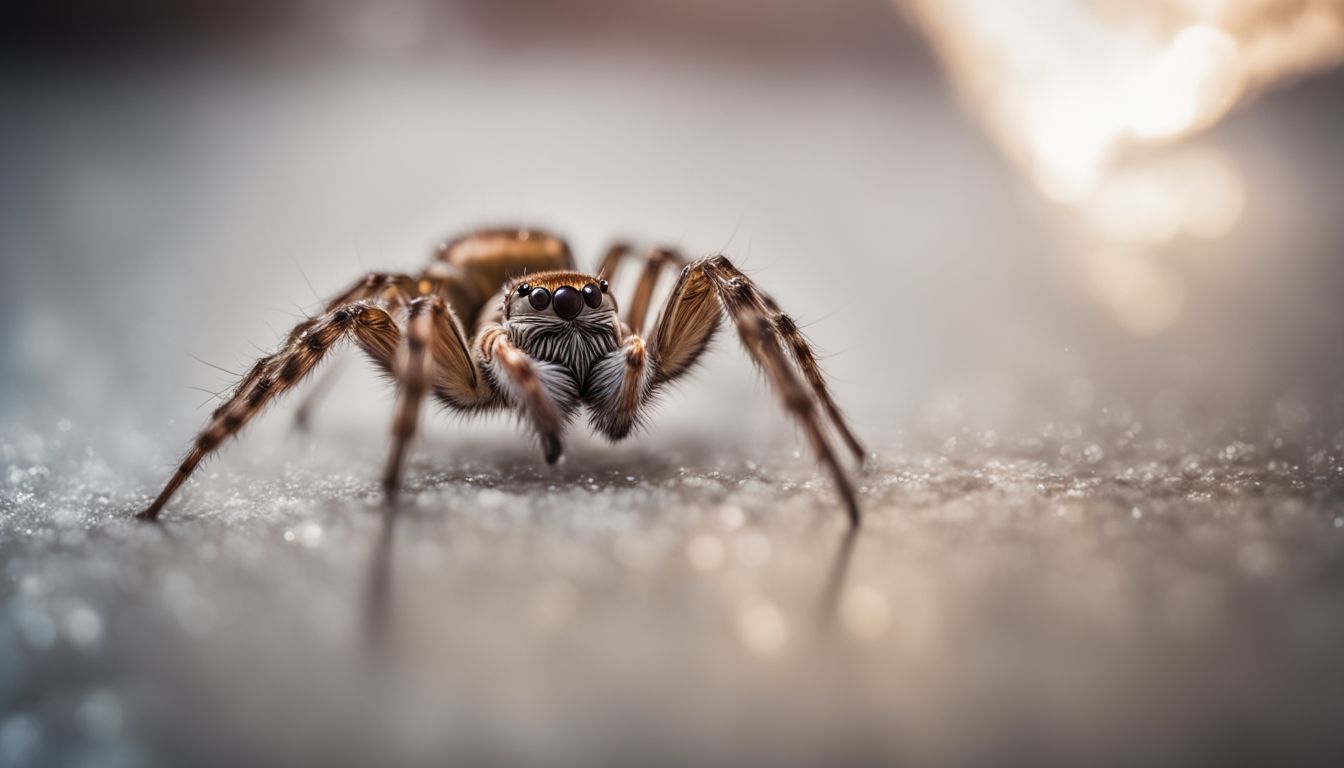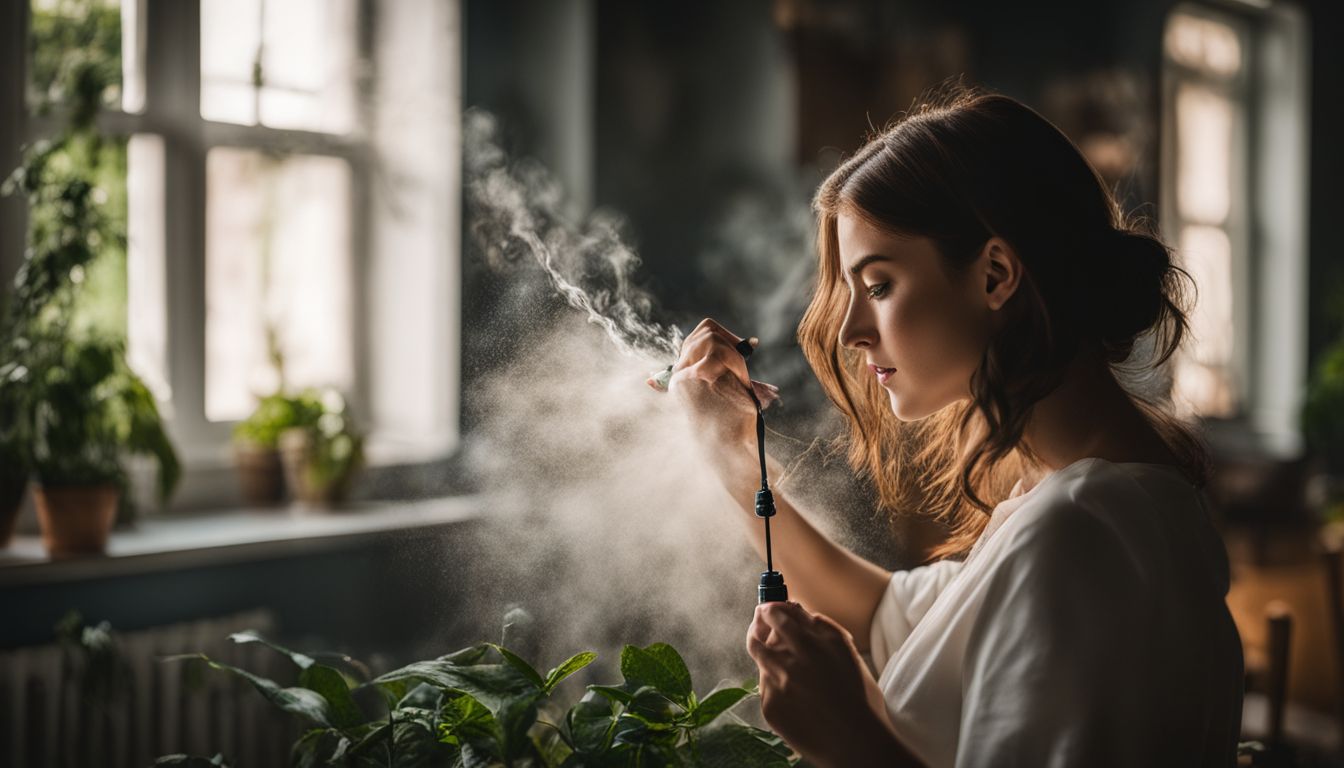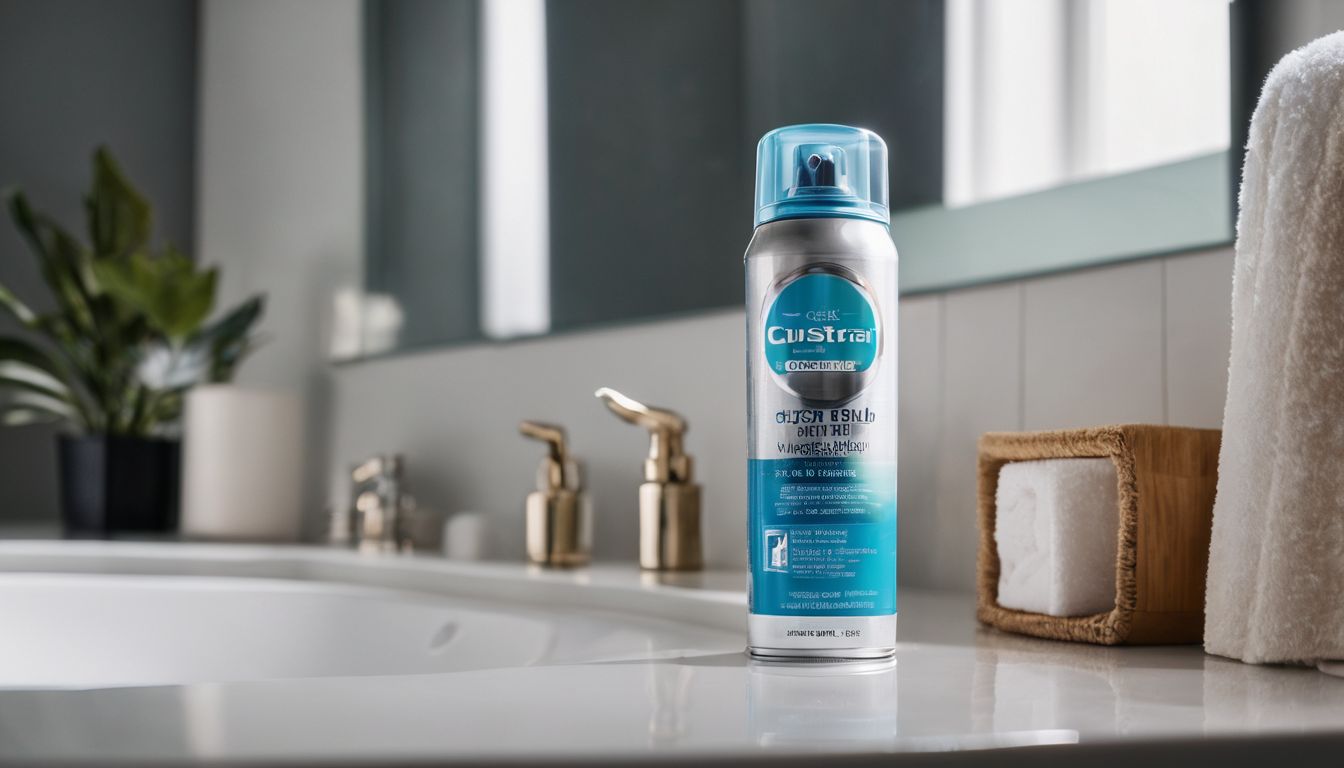Are you staring at a spider on your wall, wondering if that can of hairspray could be your unexpected ally? It’s true: many types of hairspray have chemicals that pack a punch against pesky arachnids.
This guide will unveil the sticky truth behind using hairspray to combat spiders and provide practical tips for doing it effectively. Keep reading – victory over spiders might just be a spray away!
Key Takeaways
- Hairspray can kill spiders through suffocation, immobilization, and toxic effects from its chemical ingredients.
- Proper application of hairspray for spider elimination involves identifying the spider’s location, using correct spraying technique, and ensuring safety and hygiene during post-spray cleanup.
- Choosing the right hairspray with potent pesticides, prioritizing ventilation to prevent inhalation, and protecting pets, children, and sensitive areas are crucial safety considerations when using hairspray for spider control.
- Natural methods like essential oils or safe chemical options such as boric acid can be effective alternatives to using hairspray for controlling spiders.
The Truth About Hairspray and Spiders

Hairspray can potentially kill spiders through suffocation, immobilization, and toxic effects from its chemical ingredients. Understanding how hairspray affects spiders is crucial for effective spider control in your home.
Suffocation: How Hairspray Can Asphyxiate Spiders
Hairspray can stop spiders from breathing. It has sticky stuff that covers their bodies. This makes it hard for the spider to get air. Spiders breathe through sides of their bodies, and when hairspray gets on these spots, they can’t breathe well.
Spraying a spider with hairspray will make it unable to move or get air. After some time, this lack of air kills the spider. For little spiders, hairspray works quickly because they are not strong enough to break free from the sticky layer.
But big spiders might have more strength to escape before they run out of air.
Immobilization: The Sticky Situation for Spiders
Spiders can get caught in a tight spot when they run into hairspray. The sticky polymers in the spray trap them where they stand. They struggle to move as their legs and bodies become coated with this gooey substance.
It’s like quicksand for these eight-legged wanderers, making it impossible for them to escape.
This method doesn’t kill them right away but makes sure spiders can’t keep crawling around your home. Think of it like putting handcuffs on someone so they can’t run off – immobilize spiders means stopping them in their tracks! So while the spider is stuck, you have time to decide what to do next.
Toxic Effects: Chemicals in Hairspray That Affect Spiders
Hairspray is full of chemicals that can hurt spiders a lot. These harsh ingredients make it hard for spiders to move and breathe after being sprayed, which often leads to them dying in just a few minutes.
Spraying these chemicals on spiders messes with their bodies and stops them from living.
These sprays are not just sticky but poisonous too. They have stuff like fragrances and other strong substances that should not touch bugs. If you spray hairspray onto spider eggs, it might kill them as well, although how well it works can change depending on what kind of hairspray you use.
Next up: Let’s look at how using alcohol compares to hairspray when dealing with spiders around the house.
Comparing Hairspray with Other Household Spider Control Methods

While hairspray is a popular choice for killing spiders, it’s not the only household method available. From using alcohol to natural options like essential oils and perfumes, there are various ways to tackle a spider infestation.
Does Alcohol Kill Spiders??
Yes, alcohol can kill spiders. However, it might not be the fastest way to get rid of them. When sprayed directly on a spider, alcohol can disrupt their cells and eventually lead to death.
Yet, depending on the concentration and type of alcohol used, this method may take some time to effectively eliminate the spider. Although there are various household products like rubbing alcohol that people believe can kill spiders, their effectiveness may differ based on the circumstances.
When dealing with a spider infestation or trying to control pests in your home, it’s crucial to consider all available options before choosing which method is best for you.
Proper Application of Hairspray for Spider Elimination
Identifying the Spider’s Location is crucial before using hairspray. The spraying technique and post-spray cleanup are equally important to ensure effective spider elimination.
Identifying the Spider’s Location
To find where spiders are, look for webs, especially in corners or hidden spots. Spiders also like dark areas and places with clutter. Check behind furniture and inside closets and cabinets.
Remember to wear gloves when searching. Look carefully because some spiders are small and hard to see.
If you see a spider in your home but aren’t sure what kind it is, taking a picture can help an exterminator identify it later. Keep the area clean while identifying the spider’s location to reduce attracting more unwanted pests.
Spraying Technique: Dos and Don’ts
When using hairspray to kill spiders, proper spraying technique is crucial. Here are some dos and don’ts to keep in mind:
- Do aim the hairspray directly at the spider for maximum effectiveness, covering it completely.
- Do maintain a safe distance from the spider while spraying to avoid getting too close.
- Do ensure that the area is well – ventilated when applying the hairspray to prevent inhaling fumes.
- Don’t oversaturate the area with hairspray as excessive use may lead to unnecessary chemical exposure.
- Don’t spray near open flames or hot surfaces, as hairspray is highly flammable.
Post-Spray Cleanup: Ensuring Safety and Hygiene
After using hairspray to eliminate spiders, it is important to follow these steps for safe and hygienic post-spray cleanup:
- Thoroughly ventilate the sprayed area to dissipate any lingering fumes from the hairspray.
- Use a vacuum cleaner with a hose attachment to carefully remove any immobilized or dead spiders and their webs.
- Wipe down surfaces with a damp cloth or mild cleaning solution to remove any residue from the hairspray.
- Dispose of the vacuum bag or empty the canister into an outdoor trash bin.
Safety Concerns and Considerations
When using hairspray for spider control, it’s important to consider safety measures such as choosing the right product, ensuring proper ventilation, and safeguarding pets and children from exposure.
These precautions can help you effectively eliminate spiders while keeping your loved ones safe.
Choosing the Right Hairspray
When choosing a hairspray to kill spiders, consider the specific chemicals in the product. Look for hairsprays with strong-holding formulas, as they often contain more effective insect-killing ingredients.
Ensure that the hairspray is labeled as an insecticide or mentions spider control on its label. Additionally, opt for a hairspray with minimal fragrance and avoid using hairsprays that are designed specifically for hair styling purposes.
Remember to check for any safety warnings on the can and choose a hairspray that will not harm pets, children, or sensitive areas when used properly.
Choosing the right hairspray for eliminating spiders involves considering its effectiveness and safety precautions. It’s important to select a hairspray specifically formulated for insect control to ensure it contains potent pesticides capable of killing spiders effectively.
Ventilation and Preventing Inhalation
When using hairspray for spider control, it’s important to prioritize ventilation. Ensure the area is well-ventilated by opening windows or using fans. Additionally, avoid inhaling the hairspray mist by positioning yourself away from the sprayed area and wearing a mask if necessary.
Remember to keep pets, children, and sensitive areas away during and after spraying.
Now let’s delve into the next crucial aspect of spider eradication with hairspray: Protecting Pets, Children, and Sensitive Areas.
Protecting Pets, Children, and Sensitive Areas
When considering spider control methods, it’s important to protect pets, children, and sensitive areas in your home. Some spiders can pose potential health risks to pets and children if they come into contact with them or their webs.
Ensuring that the products used for spider control are safe for use around pets and children is crucial. Additionally, taking extra care when applying any household spider control method near sensitive areas such as bedrooms or play areas is essential to maintain a healthy living environment for everyone.
Choosing the Right Hairspray | Preventing Inhalation
Alternatives to Hairspray for Spider Control
Consider exploring natural methods and safe chemical options as alternatives to using hairspray for spider control. To learn more about effective ways to deal with spiders in your home, keep reading!
Natural Methods and Safe Chemical Options
You can use essential oils like peppermint, tea tree, citrus oil, lavender, and neem to repel spiders.
Conclusion: Weighing the Pros and Cons of Using Hairspray Against Spiders
In conclusion, using hairspray to kill spiders has both advantages and drawbacks. It can effectively immobilize and eventually eliminate spiders, making it a convenient solution for novices.
However, choosing the right hairspray and ensuring safety measures are crucial considerations. While there are other spider control methods available, understanding the proper application of hairspray can make it a useful tool in managing indoor spider infestations.
If you’re looking for more information on other household methods to control spiders, discover whether alcohol can kill spiders as an alternative solution.
FAQs
1. Can hairspray actually kill spiders?
Yes, hairspray can kill spiders because it sticks to them and stops them from moving.
2. Is using hairspray a good way to get rid of spiders?
Using hairspray is not the best way to deal with spiders as it can make things dirty and there are better methods.
3. What happens when you spray a spider with hairspray?
When you spray a spider with hairspray, the spray covers the spider, which can make it hard for the spider to move or breathe.
4. Should I use something else instead of hairspray to handle spiders at home?
Yes, it’s better to use products made to safely remove spiders or call someone who knows how to deal with pests in your home.




